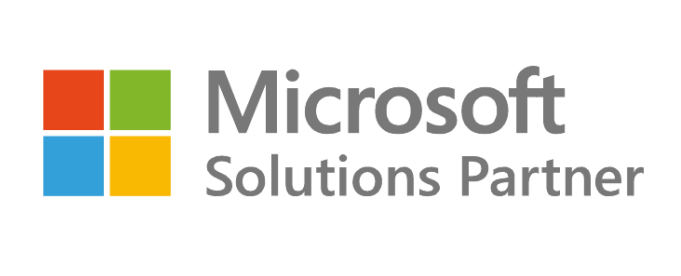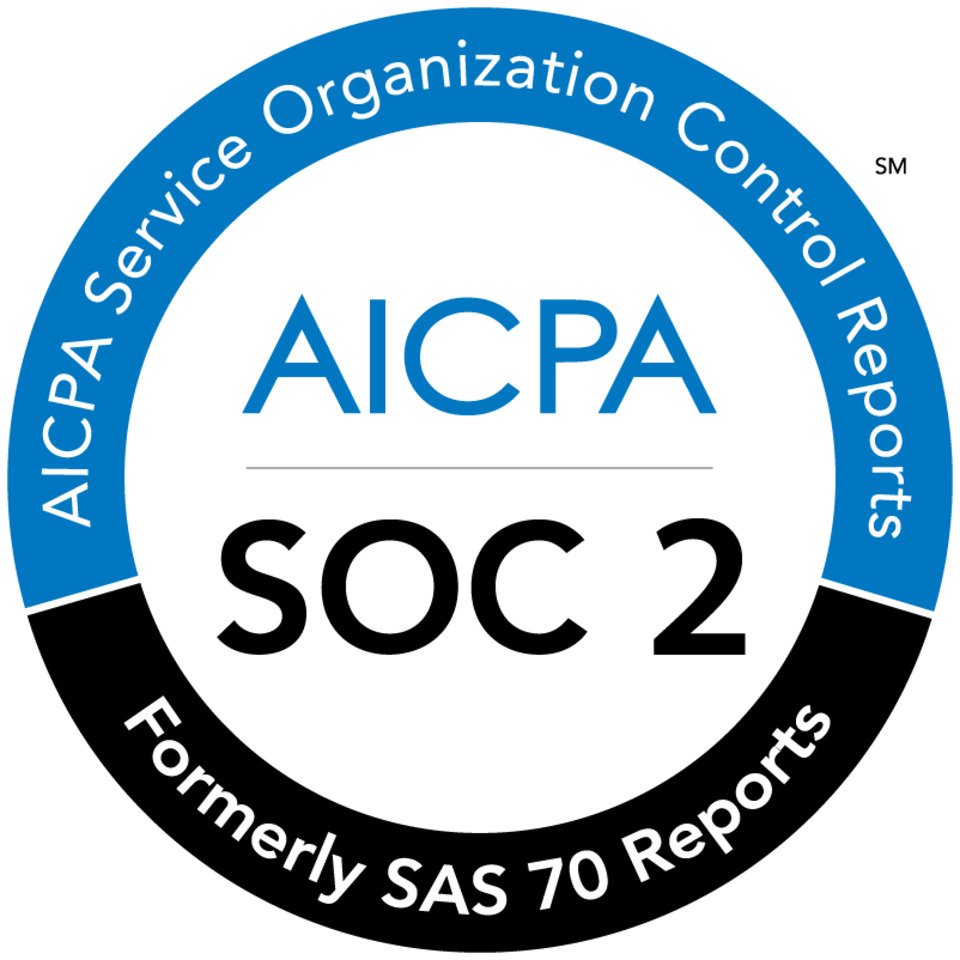Custom AI Solutions for Financial Strategy
We partner with industry leaders



Industries That Benefit
Banking Institutions
Retail and commercial banks face intensifying competition while managing complex risk decisions across lending, operations, and market activities that traditional approaches fail to optimize effectively. Digital banks require proprietary intelligence capabilities to differentiate from competitors using the same generic fintech solutions and vendor platforms. Private banks need sophisticated AI systems that capture unique client relationship patterns and investment preferences to maintain their premium service positioning. Investment banks struggle with suboptimal trading and risk management decisions that impact profitability despite having access to vast proprietary data assets.
Our custom solutions deliver:
- Proprietary credit models outperforming generic approaches
- Strategic early warning systems for emerging risks
- Superior customer targeting and relationship optimization
- Significant competitive advantages in core banking functions
Wealth & Asset Management
Wealth management firms must deliver increasingly sophisticated advice and portfolio strategies while scaling relationship management capabilities beyond what generic solutions provide. Boutique firms struggle to compete with larger organizations’ technology capabilities while maintaining their differentiated service approach and client relationships. Family offices require custom intelligence systems that understand complex multi-generational wealth structures and unique investment objectives across diverse asset classes. Asset management firms need proprietary forecasting and optimization capabilities that capture their specific investment philosophy and risk management approach. Pension funds and mutual funds face pressure to deliver superior returns through intelligence capabilities that generic vendor solutions cannot provide.
Wealth managers receive:
- Custom client opportunity identification
- Sophisticated next-best action recommendations
- Personalized portfolio optimization aligned with client goals
- Strategic advantage in client acquisition and retention
Investment Firms
Private equity and venture capital firms require sophisticated intelligence to identify opportunities and optimize portfolio decisions in increasingly efficient markets where generic solutions provide limited advantage. Hedge funds need proprietary signals and forecasting capabilities that capture unique market insights beyond what standard vendor solutions can deliver. Investment organizations struggle with complex allocation and risk decisions that require custom intelligence reflecting their specific investment mandates and expertise. Real asset managers face challenges optimizing portfolio construction and risk management across diverse asset classes using their proprietary market knowledge. Impact investors need custom systems that optimize both financial returns and impact metrics across their unique investment criteria.
Investment teams gain:
- Proprietary signals capturing unique market insights
- Custom portfolio construction aligned with specific mandates
- Advanced risk modeling beyond conventional approaches
- Sustainable alpha generation capabilities
Fintech Companies
Payment platforms and digital wallets need proprietary fraud detection and risk assessment capabilities that provide competitive advantages beyond generic fintech solutions. Lending startups require custom credit scoring and risk models that capture unique customer segments and proprietary data sources unavailable to competitors. Robo-advisors struggle to differentiate their offerings using the same portfolio optimization and advice engines available to all competitors in the market. Crypto exchanges need sophisticated trading and risk management systems that handle the unique volatility and complexity of digital asset markets. BNPL platforms require custom risk assessment and decision systems that optimize approval rates while managing default risk across their specific customer base.
Fintech operations achieve:
- Proprietary intelligence systems providing sustainable competitive differentiation
- Custom risk and decision models reflecting unique business approaches
- Strategic advantage through AI capabilities competitors cannot replicate
- Enhanced performance in core functions driving business success
Capital Markets & Trading
Brokerages require sophisticated execution and client management systems that optimize trading performance and relationship profitability beyond generic trading platforms. Market makers need proprietary pricing and execution algorithms that provide competitive advantages in increasingly automated markets. Securities exchanges struggle with complex market surveillance and optimization decisions that require custom intelligence reflecting their unique market structure. Prop trading firms face intense competition requiring proprietary forecasting and execution capabilities that generic solutions cannot provide. Trading desks need custom systems that optimize execution and risk management across their specific trading strategies and market expertise.
Capital markets operations receive:
- Proprietary trading and execution systems optimized for specific strategies
- Custom risk management capabilities reflecting unique market exposure
- Advanced forecasting and decision support systems providing competitive edge
- Strategic intelligence enhancement across core trading and client functions
Insurance & Risk Providers
significant financial implications that standard models fail to optimize effectively. General insurers require custom risk assessment and pricing models that capture their unique business mix and underwriting expertise. Life and health insurers need sophisticated forecasting systems that optimize product pricing and reserve management across their specific customer base. Reinsurers struggle with complex portfolio optimization and risk assessment decisions that require proprietary intelligence capabilities. Digital insurers need custom systems that maintain their operational efficiency advantages while providing superior risk assessment and customer experience.
Insurance organizations benefit from:
- Superior risk assessment aligned with specific portfolios
- Strategic early identification of emerging claim patterns
- Optimized reinsurance and capital allocation
- Significant advantage in pricing and underwriting decisions
Crowdfunding & Alternative Finance
Crowdfunding platforms struggle with investor matching and opportunity assessment decisions that require custom intelligence beyond generic recommendation systems. Real estate investment platforms need sophisticated property valuation and risk assessment models that capture their unique market expertise and investment approach. Startup financing platforms require custom deal evaluation and risk assessment systems that optimize their specific investment criteria and portfolio management approach. Alternative finance providers face complex lending and risk decisions that require proprietary intelligence capabilities reflecting their unique business models. These platforms need custom systems that provide competitive advantages in increasingly crowded alternative finance markets.
Alternative finance operations gain:
- Proprietary deal evaluation and risk assessment capabilities
- Custom investor matching and opportunity identification systems
- Strategic advantage through intelligence systems competitors cannot replicate
- Enhanced performance in core functions driving platform success and growth
Corporate Finance & Treasury Divisions
Corporate finance teams make critical decisions around capital allocation, funding strategies, and financial operations that require sophisticated intelligence beyond standard financial planning tools. Treasury departments struggle with complex cash management and investment decisions that impact financial performance across multiple business units and markets. Internal finance teams need custom forecasting and optimization systems that capture their unique business patterns and strategic priorities. Strategy and risk offices require proprietary intelligence capabilities for major business decisions and competitive positioning that generic solutions cannot provide. These divisions face increasing pressure to optimize financial performance through strategic intelligence that provides sustainable competitive advantages.
Finance departments gain:
- Superior cash forecasting and liquidity optimization
- Strategic funding optimization across alternatives
- Advanced working capital enhancement capabilities
- Significant improvement in capital efficiency and returns
Problems or Missed Opportunities We Solve
Limited Value from Generic AI
Most financial organizations implement standardized AI solutions that deliver initial benefits but create no sustainable competitive advantage. These generic approaches become table stakes rather than differentiators as they proliferate across competitors.
Our bespoke approach:
- Creates truly proprietary capabilities reflecting your unique advantages
- Captures organizational knowledge impossible in generic solutions
- Implements strategic intelligence rather than operational automation
- Delivers sustainable competitive differentiation in core functions
Unexploited Proprietary Data
Financial institutions possess valuable proprietary data and domain knowledge that remains unexploited in standard analytics approaches. This untapped strategic asset represents significant missed value opportunity.
Custom AI captures:
- Unique insights from proprietary transaction patterns
- Organizational expertise from experienced professionals
- Relationship intelligence from client interactions
- Competitive advantages from combined data assets
Suboptimal Complex Decisions
Key financial decisions involving multiple variables, complex relationships, and significant uncertainty remain suboptimal despite their substantial impact on organizational performance. These decision gaps represent major value opportunity.
Bespoke intelligence delivers:
- 25-40% improvement in key decision outcomes
- Comprehensive consideration of relevant factors
- Consistent application of best decision practices
- Significant enhancement of human expertise
Insufficient Strategic Foresight
Financial leaders lack accurate projections of emerging conditions, market shifts, and competitive actions, creating both missed opportunities and unexpected challenges. These foresight limitations impact strategic positioning and financial performance.
Custom forecasting provides:
- 40-60% improvement in strategic prediction accuracy
- Early identification of emerging patterns and trends
- Comprehensive scenario modeling for key uncertainties
- Superior foundation for strategic planning and positioning
Failed AI Transformation Initiatives
Many financial organizations attempt AI transformation with generic approaches, resulting in disappointing outcomes, wasted investment, and organizational resistance. These implementation failures delay strategic progress and competitive positioning.
Our approach ensures:
- Clear strategic focus on high-value applications
- Practical implementation aligned with organizational readiness
- Measurable business outcomes rather than technical deployment
- Sustainable capability development beyond initial implementation
Case Study
Real Results from Financial Leaders
KYC Automation for a German Payments Fintech
A mid-sized German payment gateway with 180 employees processing approximately €700-800M in annual transactions, active in 6 EU markets.
- 28% conversion increased
- 40% improved performance
Conversational AI for a Spanish Insurance Firm
A traditional Spanish insurance provider with 85 years of history, 950 employees, and €280 million in annual premiums across home, auto, life, and commercial lines.
- 28% conversion increased
- 40% improved performance
Real-Time Fraud Detection in UK Digital Payments App
A fast-growing UK-based mobile payment application with 165 employees processing approximately £1.3 billion in annual transaction volume with around 700k active users.
- 28% conversion increased
- 40% improved performance
AI Copilot for Treasury Operations at a Spanish Payment Orchestration Platform
A mid-sized German payment gateway with 180 employees processing approximately €700-800M in annual transactions, active in 6 EU markets.
- 28% conversion increased
- 40% improved performance
Certifications & Compliance



Benefits of Using the Solution

Sustainable Competitive Advantage
Develop truly proprietary intelligence capabilities that provide lasting differentiation in core business functions. Financial institutions create strategic advantages that generic vendor solutions cannot replicate, establishing sustainable leadership in critical areas.

Significant Financial Impact
Implement AI in functions with direct bottom-line impact through enhanced decision quality, risk management, and client value. Organizations typically achieve 15-30% improvement in target financial metrics through bespoke intelligence applied to high-value decisions.

Strategic Knowledge Capture
Transform experienced professional judgment and institutional knowledge into systematic intelligence that scales across the organization. Financial firms preserve and leverage valuable expertise that would otherwise remain limited to individual professionals.

Enhanced Decision Confidence
Provide decision-makers with comprehensive analysis, scenario evaluation, and supporting evidence for complex judgments. Leadership teams gain confidence in strategic decisions through sophisticated intelligence specifically aligned with organizational context.

Accelerated Strategic Execution
Implement coordinated intelligence enhancement across core functions rather than fragmented tactical AI deployments. Organizations accelerate strategic transformation through cohesive capability development across interdependent business areas.
Unlock Intelligent Growth
Aspagnul delivers end-to-end AI-powered solutions that drive efficiency, security, and scale for modern financial institutions.
Process Flow

Strategic Opportunity Assessment
The engagement begins with comprehensive evaluation of your strategic priorities, competitive advantages, and high-value decision processes. This assessment identifies specific AI applications with substantial business impact and competitive differentiation potential.
Solution Architecture & Design
AI architects and financial domain experts design custom intelligence systems specifically aligned with your business requirements and strategic context. This design phase establishes the technical foundation for truly differentiated capabilities rather than generic implementations.
Proprietary Model Development
Data scientists and financial specialists develop custom predictive and analytical models incorporating your unique data assets and domain expertise. This development process focuses on capturing proprietary advantages rather than implementing standard approaches.
Organizational Integration
Implementation specialists ensure effective integration with existing processes, systems, and decision workflows. This integration phase focuses on practical business application rather than isolated technical deployment.
Validation & Performance Verification
Rigorous testing confirms performance improvements, strategic alignment, and reliability for business-critical applications. This validation ensures tangible value delivery rather than theoretical capabilities.
Capability Transfer & Ongoing Enhancement
Knowledge transfer to internal teams establishes sustainable capabilities beyond the initial implementation. Ongoing collaboration enhances and expands strategic intelligence based on emerging business needs and competitive evolution.
Why Aspagnul Is the Ideal Partner
Financial Strategy Focus
The Aspagnul team combines deep expertise in financial strategy, competitive positioning, and core business processes with advanced AI capabilities. This strategic focus ensures our solutions address fundamental business advantages rather than merely implementing generic technical capabilities.
Our strategic advisors include former financial executives, strategists, and industry specialists who understand both the technical possibilities of AI and the competitive realities of financial services.
Proprietary Methodology
Our development approach implements a proprietary methodology specifically designed for strategic financial AI rather than general-purpose data science. This specialized approach ensures solutions that capture unique organizational advantages rather than replicating standard capabilities.
The methodology incorporates specialized techniques for knowledge capture, decision optimization, and strategic forecasting developed through years of financial AI implementation experience.
Cross-Functional Expertise
Our teams integrate expertise across financial domains, advanced AI, organizational change, and technology implementation to deliver comprehensive solutions. This multidisciplinary approach ensures practical business value rather than isolated technical capabilities.
This integrated perspective enables solutions addressing the full spectrum of implementation requirements from model development through organizational adoption and strategic application.
Financial-Grade Implementation
Our development processes satisfy the stringent requirements of financial applications, including explainability, governance, security, and regulatory compliance. This financial-grade implementation ensures solutions suitable for high-stakes financial applications rather than experimental deployments.
The team brings extensive experience implementing AI within complex financial environments, navigating the unique governance and compliance requirements these applications demand.
Proven Strategic Impact
Our custom financial AI solutions have delivered measured business impact for global financial institutions across banking, investment, insurance, and wealth management. This demonstrated performance provides confidence in tangible outcomes rather than speculative benefits.
Financial institutions partner with Aspagnul when strategic advantage matters more than generic automation, achieving measured improvement in core financial metrics through truly differentiated intelligence capabilities.
Frequently Asked Questions
Sustainable competitive advantage in financial AI requires fundamental differentiation beyond what generic solutions provide. Our approach creates lasting advantage through four complementary strategies: proprietary data advantage—capturing unique transaction patterns, relationship insights, and organizational knowledge unavailable to competitors; algorithmic innovation—developing custom mathematical approaches specifically designed for your business context rather than standard techniques; decision process integration—embedding intelligence directly into core workflows where it creates measurable business impact; and ongoing evolution—establishing continuous learning capabilities that maintain advantage as conditions change.
This strategic approach focuses on areas where your organization possesses unique advantages that generic AI cannot replicate. Financial institutions typically achieve 25-40% performance improvement over standard solutions in these strategically differentiated applications, with advantages that persist because they reflect proprietary organizational capabilities rather than widely available technology. The resulting competitive position remains defensible despite general AI advancement because it builds on your specific strengths rather than common capabilities.
The greatest custom AI value emerges in decisions with specific characteristics: high financial impact where small improvements deliver substantial value; proprietary context where your organization possesses unique data or expertise; complex relationships involving multiple variables and non-linear interactions; and significant judgment components not fully captured in standard rules or models. Common examples include strategic credit decisions incorporating relationship factors beyond standard scoring, portfolio optimization reflecting specific investment philosophies and constraints, client opportunity identification based on proprietary relationship patterns, and risk assessments leveraging unique business mix and underwriting expertise.
These high-value applications typically deliver 5-10x greater financial impact than generic AI automation because they enhance core value-generating decisions rather than peripheral processes. The implementation prioritizes these strategic applications through detailed value assessment, identifying specific decisions where custom AI will create measurable financial impact aligned with your strategic priorities.
Financial organizations possess invaluable expertise that standard AI approaches fail to capture. Our methodology implements sophisticated knowledge extraction through multiple complementary techniques: structured elicitation sessions mapping expert decision processes and heuristics; pattern analysis of historical decisions to identify implicit expertise factors; simulation exercises capturing professional responses to diverse scenarios; and ongoing feedback mechanisms refining models based on expert input.
This comprehensive approach transforms tacit knowledge—the experienced judgment professionals cannot easily articulate—into explicit capabilities embedded within AI systems. Financial institutions preserve and scale valuable expertise that would otherwise remain limited to individual professionals, creating both continuity advantages and organizational leverage. The resulting systems enhance rather than replace human expertise, providing decision support that respects professional judgment while ensuring consistent application of organizational knowledge.
Financial AI requires appropriate explainability for regulatory compliance, organizational adoption, and effective decision support. Our approach implements a balanced methodology: tiered explainability providing different detail levels for different stakeholders; inherently interpretable components for high-risk decision factors; supplemental explanation techniques for complex models; and comprehensive documentation spanning model architecture through decision impact.
The specific approach varies based on use case requirements—strategic trading applications demand different explainability than consumer-facing credit decisions. Our implementation balances technical performance with practical transparency appropriate to each application’s context. Financial institutions receive both the sophisticated capabilities needed for performance advantage and the clear explanations required for practical business application and regulatory compliance.
Sustainable advantage requires internal capability development alongside initial implementation. Our collaborative approach balances minimal disruption with effective knowledge transfer through structured engagement: focused involvement from key stakeholders (typically 4-6 hours weekly during active development); staged capability transfer aligned with organizational readiness; joint development accelerating internal expertise; and ongoing collaboration transitioning from implementation to enhancement.
This methodology develops your team’s capabilities while delivering immediate business value, creating sustainable advantage beyond the initial engagement. Financial institutions develop internal AI maturity through practical experience rather than theoretical training, building the foundation for ongoing strategic application long after the initial implementation. Most organizations evolve from guided implementation to collaborative enhancement to independent capability within 12-18 months, achieving both immediate value and long-term strategic advantage.
Strategic financial AI follows a progressive implementation approach delivering incremental value rather than requiring complete deployment before realizing benefits. Initial capabilities typically deploy within 3-4 months, with full implementation within 6-12 months depending on scope and complexity. The investment aligns directly with anticipated business impact rather than arbitrary technical metrics, with most financial organizations achieving positive ROI within the first year through enhanced decision quality, risk reduction, or revenue improvement.
The implementation prioritizes high-value applications first, creating early benefits that build momentum for broader transformation. This pragmatic approach delivers measurable business outcomes at each stage rather than requiring faith in distant benefits. Financial institutions typically achieve 5-8x ROI over the first three years through direct impact on core financial metrics, with the specific return profile depending on your strategic priorities and implementation scope.
Let’s get in touch
We’re excited to hear from you and to start something special together.
- Money-back guarantee if you don’t receive what we promise.
- Full financial and technical analysis of your current situation.
- Full support from the moment of our first contact.
Quick contact

Turn your financial operations with purpose-built AI solutions that reduce costs, accelerate growth, and ensure regulatory compliance across financial institutions.
